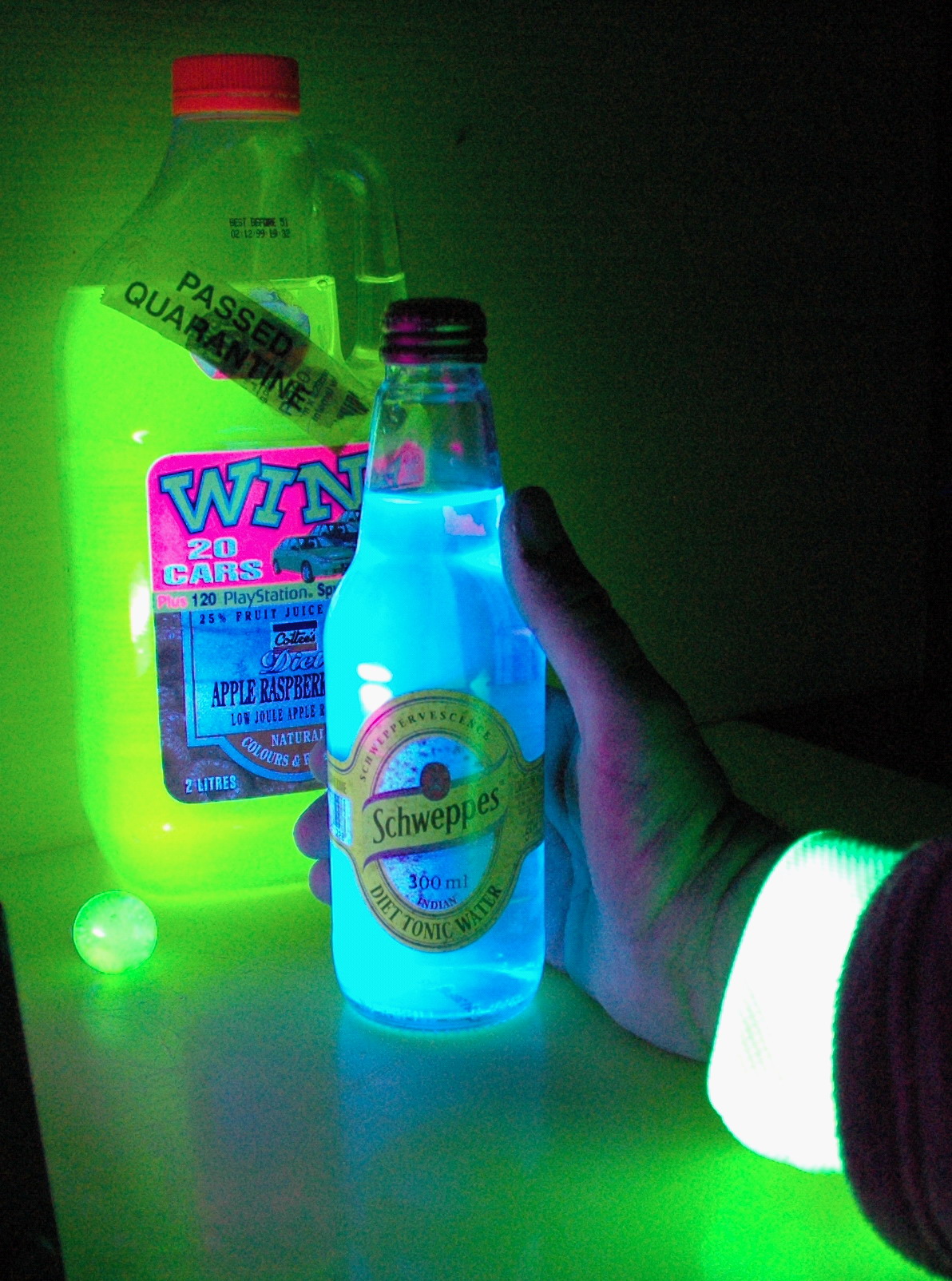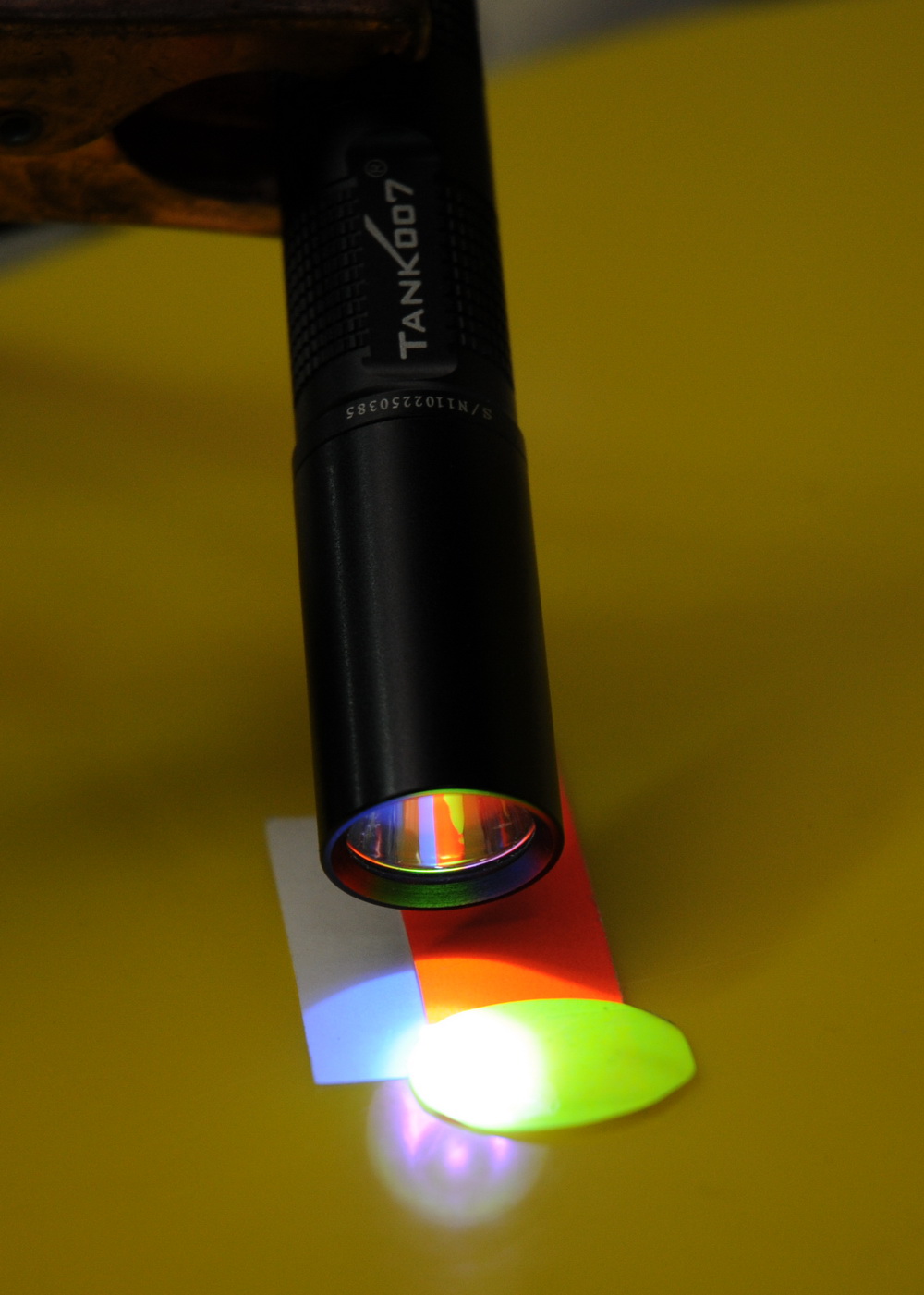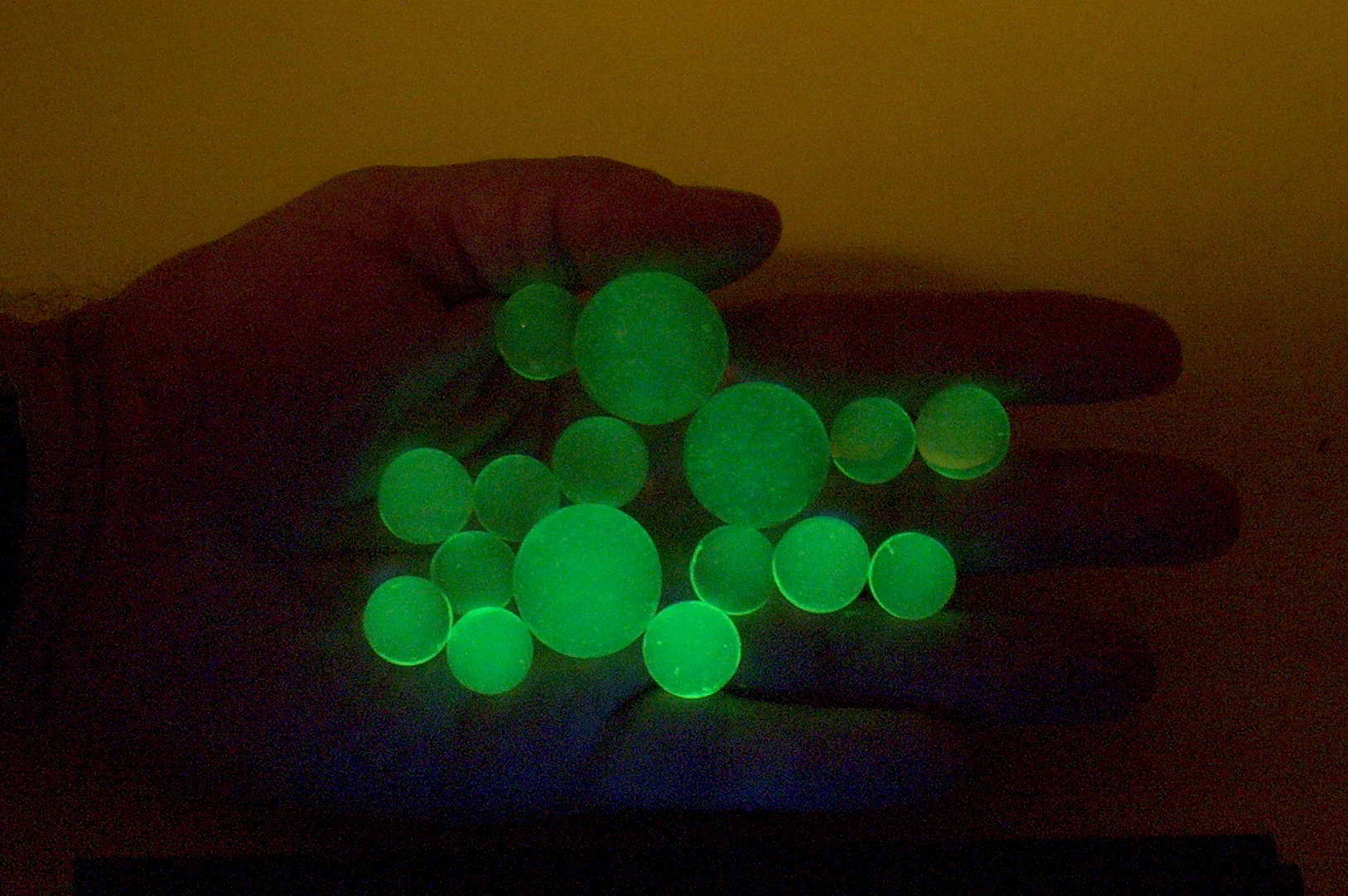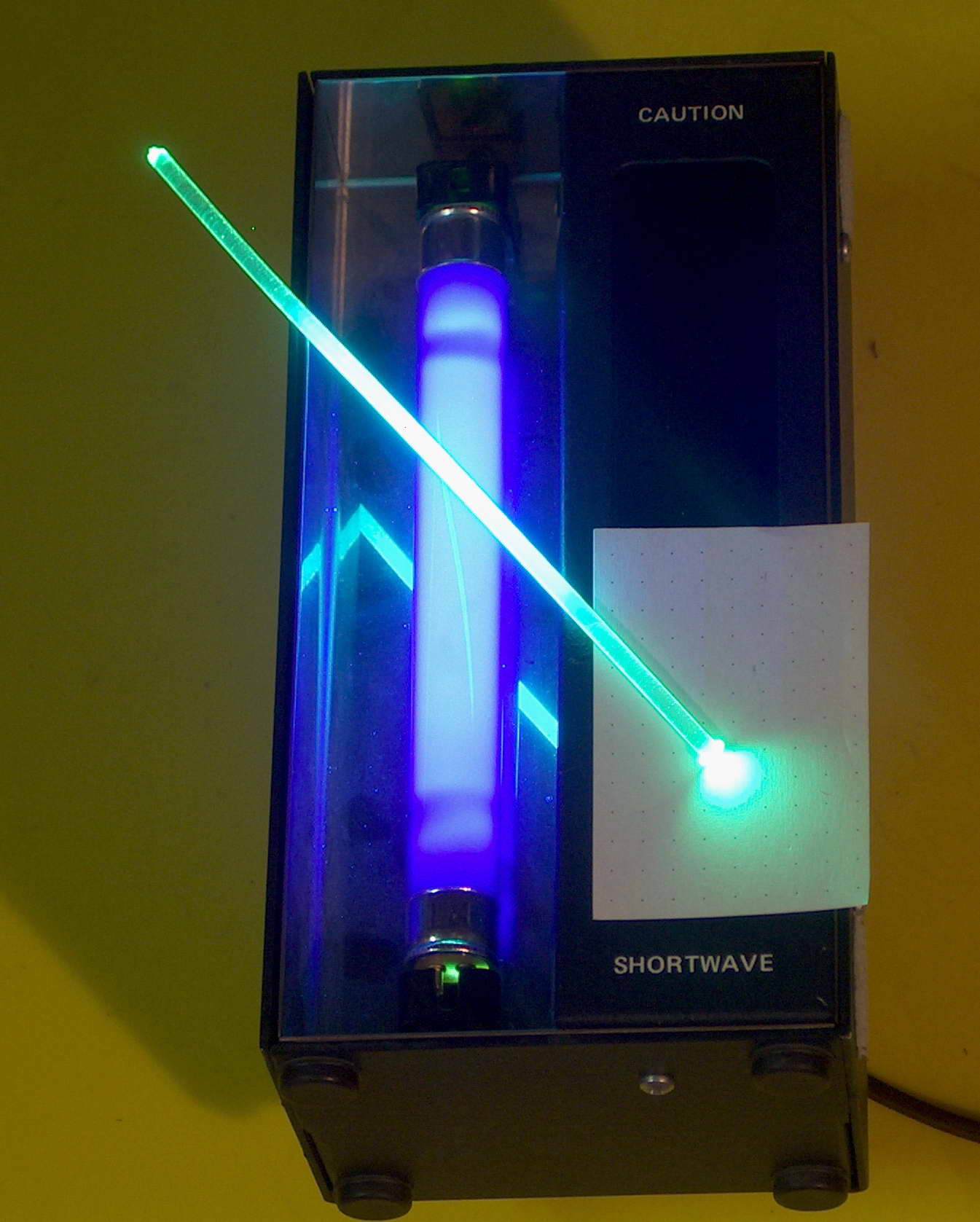Ultraviolet becomes visible when it makes things fluoresce. Tonic water under ultraviolet (UV) glows blue due to the Quinine content. Fluorescein glows green. “Continue reading” to see the effects of UV and the ways it is created. 10 photos and links.
Ultraviolet is light of wavelength less than 400 nm. For example, a Blu-ray laser is 405 nm and hence violet rather than ultraviolet.
UV is created in a number of ways that I have used. Ionisation with sparks, fluorescent tubes. Diode Lasers and LEDs Lasers (Nitrogen) Filtering white light
UV from ionisation with sparks
To be added
UV from ionisation with fluorescent tubes
This UV unit is a Model 753UVA from Sirchie Fingerprint Laboratories. It has two sources which are long wavelength (UVA) and a short wavelength (UVB) at 253.7 nm. 

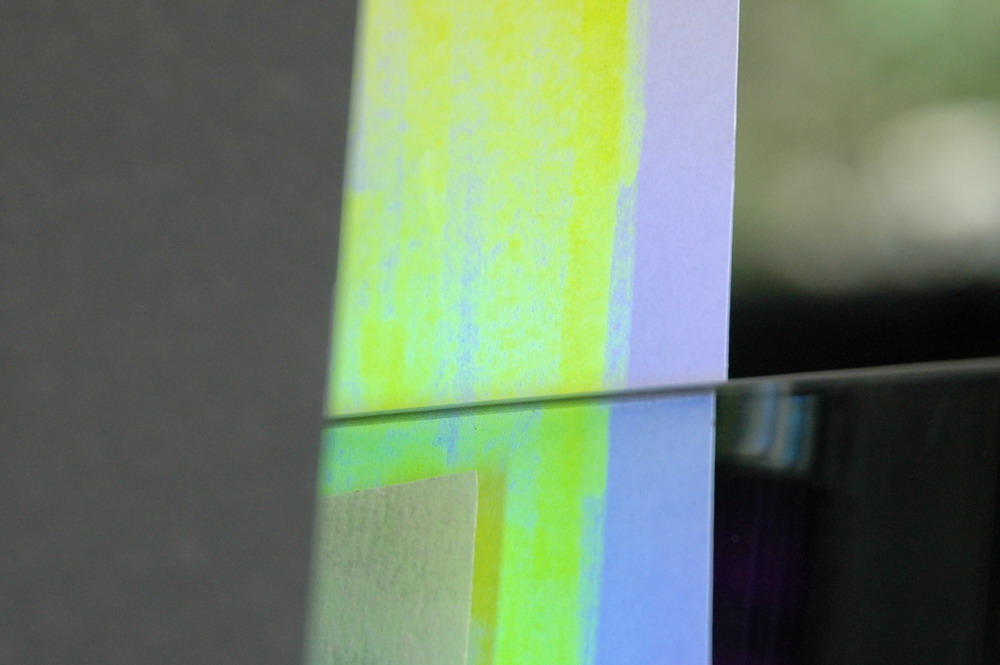 Long wave UV (UVA) at lower left, passes through a tinted car window on to fluorescent marker covered paper. It passes without much attenuation and the yellow fluorescence is visible. The tape casts a shadow to confirm the direction of the source.
Long wave UV (UVA) at lower left, passes through a tinted car window on to fluorescent marker covered paper. It passes without much attenuation and the yellow fluorescence is visible. The tape casts a shadow to confirm the direction of the source. 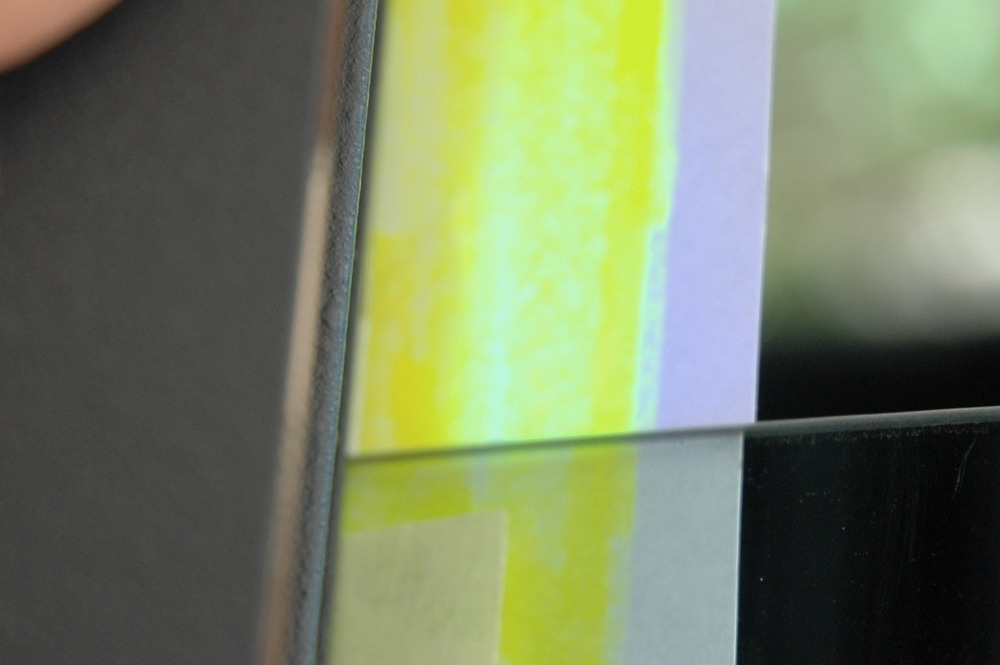 Short wave UV (UVB) at 253.7 nm is blocked but this is really short wavelength stuff. This is shown by the lack of a shadow from the cardboard. Normal sunlight is lighting up the rest. Hence long UV wavelengths (UVA) may pass quite readily through a tinted car window. These will still have energy enough to cause sunburn (and cancer) although not as readily as the short wave. Interestingly my UV coated glasses block both apparently completely.
Short wave UV (UVB) at 253.7 nm is blocked but this is really short wavelength stuff. This is shown by the lack of a shadow from the cardboard. Normal sunlight is lighting up the rest. Hence long UV wavelengths (UVA) may pass quite readily through a tinted car window. These will still have energy enough to cause sunburn (and cancer) although not as readily as the short wave. Interestingly my UV coated glasses block both apparently completely. 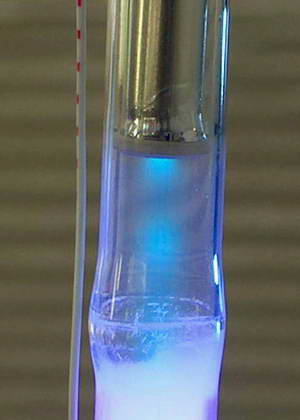 An argon tube (used to give blue “neon” lights) has mercury to give UV emission to stimulate phosphors in the tube.
An argon tube (used to give blue “neon” lights) has mercury to give UV emission to stimulate phosphors in the tube.
UV from Diode Lasers
The Blu-ray laser out of a Blu-ray player is 405 nm and hence violet rather than Ultraviolet but it stimulates fluorescence similarly.
UV from LED’s
These can be small such as this keyring one shining on phosphors in my spinthariscope.
Or a 1 W UV torch such as this.
UV from Lasers (Nitrogen)
UV fluorescent materials
A handful of uranium glass marbles glows green. Uranium glass glows green with UV and was popular for glassware early last century and in Crookes tubes.
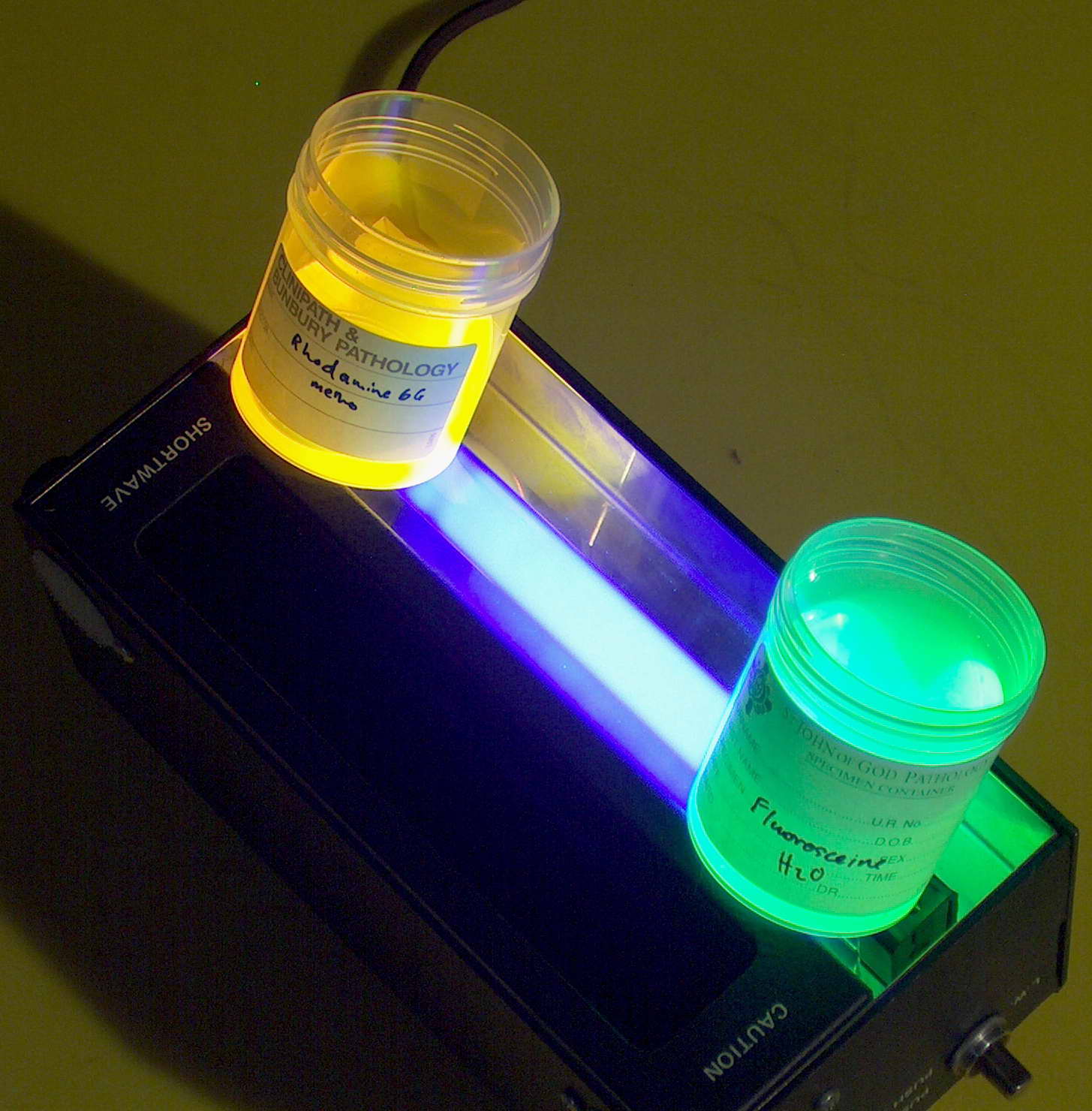 UV light makes Rhodamine 6G glow yellow and and Fluorescein glow green respectively.
UV light makes Rhodamine 6G glow yellow and and Fluorescein glow green respectively.
A fluorescent plastic rod picks up ambient light and pipes it towards the end. Even in faint light it does tend to be brighter than the surrounds and apparently it is used in gun sights.
Related pages
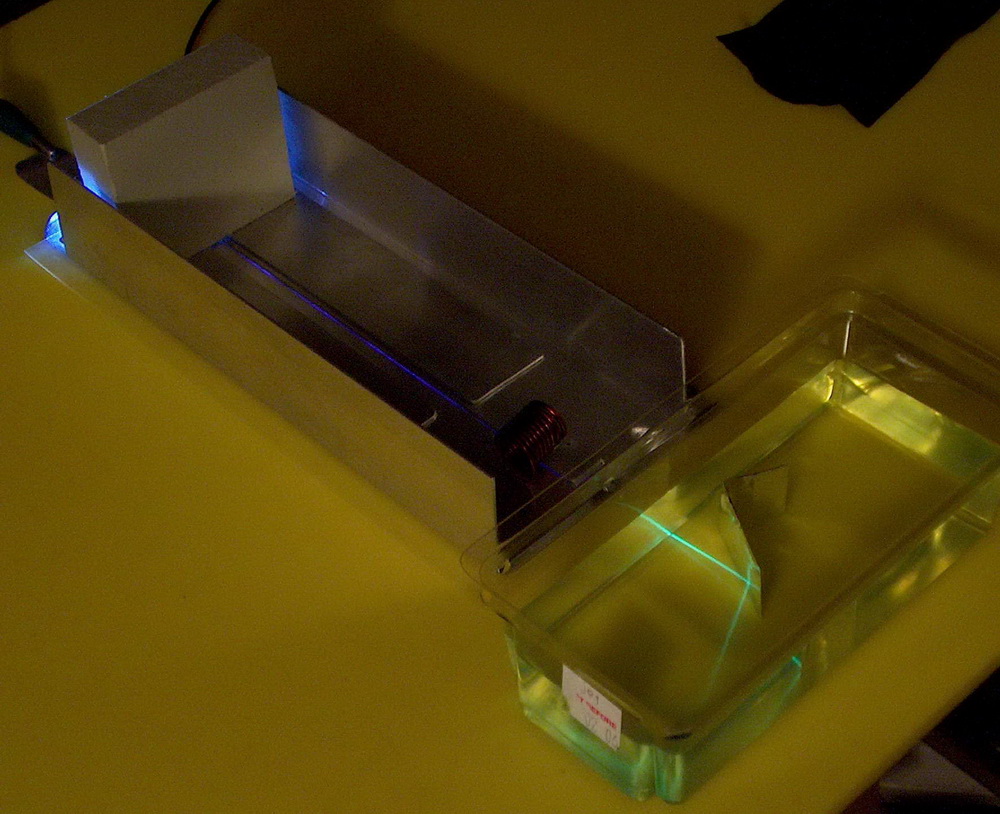 Nitrogen Laser
Nitrogen Laser
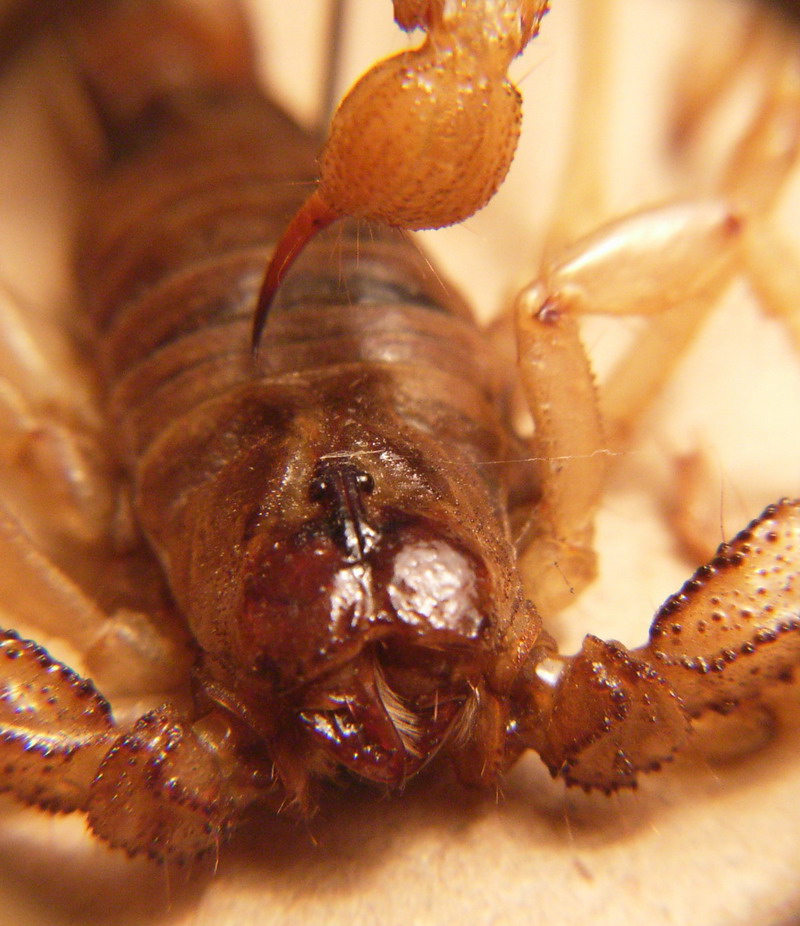 Scorpions and Ultraviolet
Scorpions and Ultraviolet
Try something else
External links
Ultraviolet – Wikipedia Scorpion – Wikipedia Scorpion – Fluorescent images Fluorescence Rhodamine 6G
Photo Date: May 4, 2006
